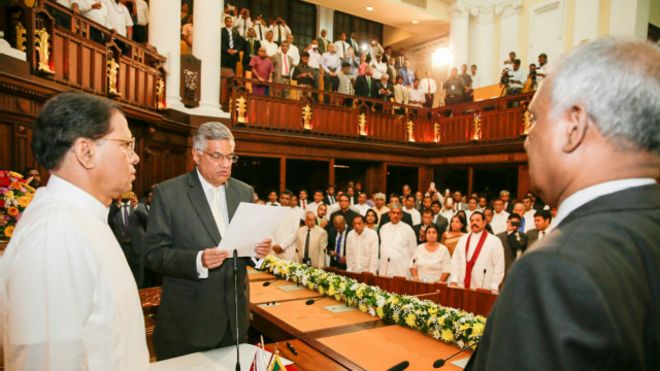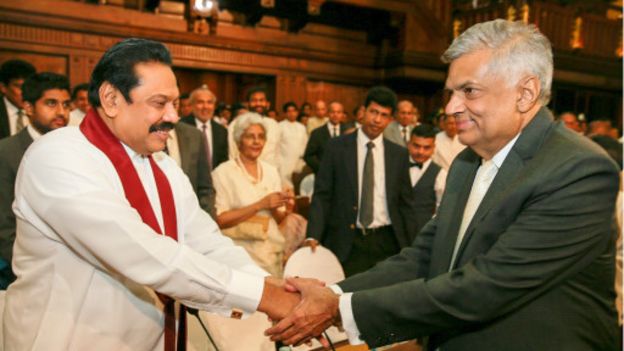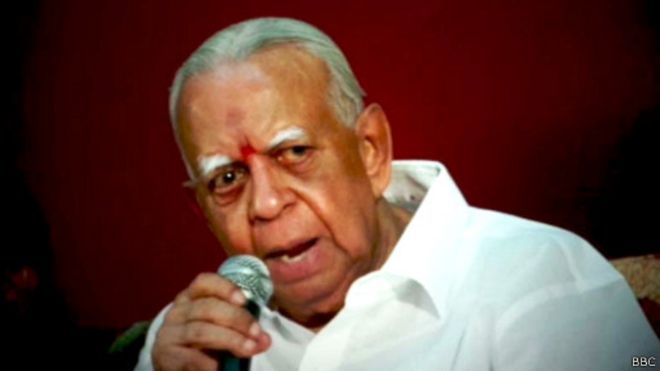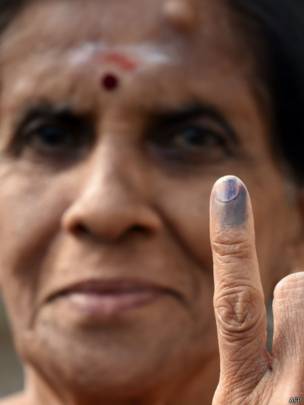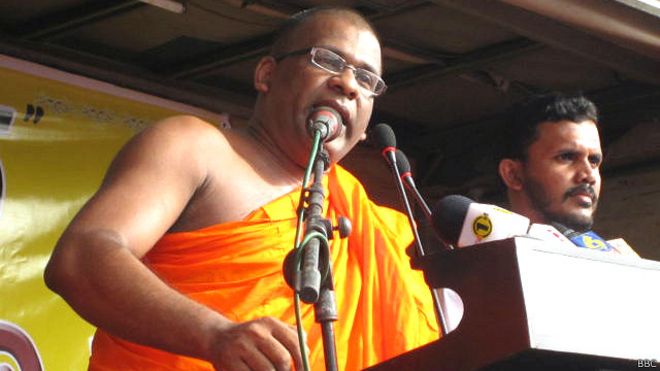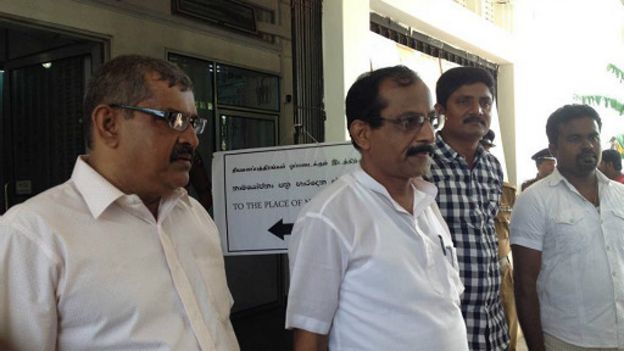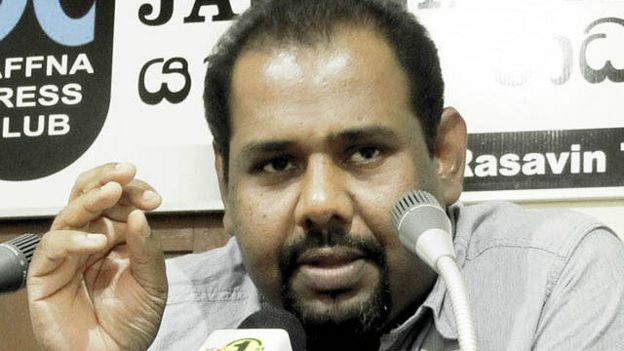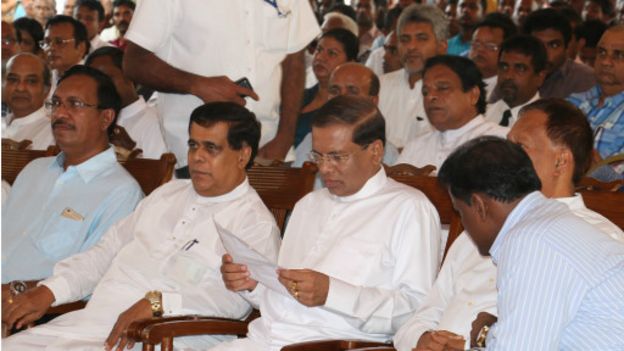Sunday, 16 August 2015 22:15
Marriage, especially for Muslims, is a lot more than having someone to call a husband or wife. The marital relationship is an incredible blessing and divine sign, as Allah
“And of His signs is that He created for you from yourselves mates that you may find tranquility in them; and He placed between you affection and mercy. Indeed in that are signs for a people who give thought.” [Qur’an: Chapter 30, Verse 21]The whole purpose of having a spouse is to find tranquility in and with them; and our relationships with our spouses have signs that Allah
How are some Muslim couples finding this tranquility in their marriage while many others seem to be having a miserable time? What are those couples whose eyes exude deep love and contentment doing right in their relationships?
Here are the top 10 habits of Muslim couples who’ve found tranquility and happiness in their marriage:
1. They love each other for Allah’s sake
What does it mean to love each other for Allah’s sake? It means you make the love and obedience of AllahHold it right there. I know what you just thought: “but my wife/husband doesn’t remind me of Allah at all.”
A lot of people who marry each other even for primarily religious reasons end up disappointed after marriage when they suddenly find their spouse not praying all the sunnah prayers (like they thought they would) or reading the Qur’an everyday or the morning and evening adhkar or fasting Mondays and Thursdays or being excited about attending halaqahs or praying tahajjud or doing something for the Ummah – like they thought they would. Our own restrictions of spirituality to acts of physical or outward worship blind us from seeing how much our spouses contribute to improving our character, which is an unsurpassed form of spiritual growth, because the Prophet
“Nothing is placed on the Scale that is heavier than good character. Indeed the person with good character will have attained the rank of the person of fasting and prayer.” [Tirmidhi]Your spouse has loved you for Allah’s sake every time they have:
- stopped you from harboring suspicions or ill-will (about your boss or competitor or any other annoying person in your life)
- stopped you from backbiting (about your friends, colleagues, in-laws (ahem))
- helped you be more kind and gentle in your speech and manners (to helpers, waiters, laborers, siblings, elders and children)
- helped you fulfill people’s trusts (by encouraging you to get to work on time and do the best at your job, to pay off your debts, to keep people’s secrets)
- helped you be more honest with yourself or to others
- helped you forgive someone and overlook their faults
- helped you become more generous or less extravagant
- helped you recognize and overcome the weaknesses of your inner self
Truly happy Muslim couples engage in winning Allah’s pleasure together whenever and in any way they can: they glorify Allah
2. They are grateful for each other
If there is one fundamental need that exists in every single human relationship, it is the need to feel relevant and appreciated. And there is no other relationship where this need is as grossly overlooked and abused, as in marriage. Why does this happen? Is it because humans tend to take things for granted, especially when they’re done by those closest to them?When you’re newly married, every single thing your spouse does for you feels so special. As time goes by, your husband going out to work hard and earn for the family becomes normal; and a few years later it becomes “his duty anyway”. Similarly, every meal your new bride cooks is delightful, then somehow the salt always seems to keep getting lesser, till eventually she’s “not doing anyone a favor by just doing her job”.
Sounds familiar? Oh yes, ungrateful Muslim spouse speaking right there!
Happy Muslim couples live and breathe this hadith in their marriage:
“He who does not thank the people is not thankful to Allah.” [Abu Dawud]What is not there to thank your spouse for? Here are 5 reasons to thank your spouse right now:
- For providing you a roof to live under/for making a home out of your house
- For buying you clothes to wear/for making sure you have clean clothes to wear everyday
- For buying you the food you eat everyday/for making delicious meals for you everyday
- For being there to take you where you need to go/for being there to take care of the house when you’re away
- For coming back home to you every evening/for being the person you can come home to everyday
“… If you are grateful, I will surely increase you [in favor]; but if you deny, indeed, My punishment is severe.” [Qur’an: Chapter 14, Verse 7]Our spouses are an immense favor and blessing of Allah
The verse doesn’t end there though. The last half of the verse should send a chill down every married person’s spine: “…if you deny, indeed, My punishment is severe.”
How many times have our egos stopped us from acknowledging and appreciating our spouses? How many times have we denied all the good they’ve done for us through a single word or sentence in the middle of a senseless argument? Every conflict left unresolved, every hurtful word exchanged and every baseless complaint is a refusal to value one of Allah’s best gifts to us: a spouse. It is a denial of a favor Allah
Allah
“And as for your Lord’s favor, then discourse about it! (i.e., proclaim it).” [Qur’an: Chapter 93, Verse 11]So if you aren’t doing so already, stop holding back and proclaim to your spouse how grateful you are for them!
You and your spouse can start becoming grateful for each other right now by:
- thanking each other for at least one thing everyday: you could do this through a text message, a note in a lunchbox or on the fridge, or just before you go to sleep at night (brothers, I promise you will not decrease in height if you do this)
- exchanging a smile that says “thank you, you mean the world to me”
- saying “thank you/jazak Allah khayr” every time your spouse does something for you
- getting/doing small things for your spouse that you know they will absolutely love
- writing down things about each other you’re grateful for in a journal and exchanging your journals regularly: journaling makes you reflect, realize and truly internalize what you’re thinking about. There’s nothing better than internalizing the gratitude you feel towards your spouse; and there’s nothing more heart-warming for them to read than what you’ve written from the depths of your heart!
3. They communicate like best friends
What a Whatsapp conversation looks like a few years into a typical marriage:“Need bread.”
“K.”
I mean, c’mon: “K”?? Not even an “o” to make that miserable “k” look a little less miserable?!
What happens to married people’s manners, interest, enthusiasm and most importantly good assumptions when talking to their spouses? Is it okay to talk this way because you’re just so used to someone? Why do we not talk this way to people we’ve been friends with for years? What makes a spouse less-deserving of respect, enthusiasm and affection when no one deserves it more than them (except our parents) for choosing to live every single day with us? Why do we not talk to our spouses like we talk to our best friends, even though they are much closer to us than anyone will ever be?
Happy Muslim couples talk like best friends, in good times and in conflict. In good times, they wait to tell each other about their day, they joke, laugh, share ideas, flirt, compliment each other, respect their spouse’s right to hold different opinions and learn from each other’s opposing points of view. In fact, happy Muslim couples communicate just like the Prophet
Aisha
Allah’s MessengerCouples that have learnt to communicate effectively do away with the majority of marital stress because they become so attuned to each other’s feelings that they can immediately sense the emotional state of their spouse through the slightest change in words or tone. And as our beloved Aishasaid to her: “I know when you are pleased with me or angry with me.” I said, “Whence do you know that?” He said, “When you are pleased with me, you say, ‘No, by the Lord of Muhammad,’ but when you are angry with me, then you say, ‘No, by the Lord of Abraham.’ ” Thereupon I said, “Yes (you are right), but by Allah, O Allah’s Messenger, I leave nothing but your name.” [Bukhari]
4. They never lose focus of each other’s primary needs
What I’ve personally discovered through my own marriage and from those of all the people who’ve discussed marital issues with me, is that the primary reason for continuous marital stress and discord is almost always due to the neglect of a spouse’s primary needs.A lot of books (by Muslim and non-Muslim authors alike) tend to classify primary marital needs based on gender or a spouse’s role in the marriage. You must’ve definitely read about men’s primary needs being respect and physical satisfaction, and that women prioritize the need for love, verbal expression and emotional satisfaction. However true these classifications may seem in theory, they’re far from practical reality, because the truth is: both men and women need love, respect, physical and emotional satisfaction, just in different degrees and ways of expression.
Men and women are equally human: Allah
Every marriage is made up of two unique people of opposite genders. That’s why, what works for one couple may not necessarily work in your marriage, because you and your spouse are different people altogether with different preferences, priorities and circumstances. For this reason, generally accepted theories that may apply to many marriages may not apply to many others because different people are different. And happy Muslim couples have this figured out. It is extremely crucial for the health of your marriage that you sit down with your spouse and figure out what is important to them, and how they’ve always expected you to fulfill those needs for them.
Here’s how to figure out and focus on fulfilling your spouse’s primary needs:
- Ask your spouse: “What is the one thing you cannot do without in this marriage?” Give them options to think about like love, respect, emotional or physical satisfaction, financial security, a peaceful or Islamic environment at home, etc.
- Ask them for examples of how they want these needs fulfilled: “How have you always expected me to do this for you?” Give them examples to help them figure out their preferences: ask them if they expect you to get small surprise gifts regularly, verbally compliment them more, take the initiative to pray or read and reflect on the Qur’an together, plan date nights, consult them before making a significant decision, talk to them in a certain way, dress up and prepare special surprise meals at home with the kids asleep, not say certain things in arguments, etc.
- Write down their needs and preferences.
- Make dua and sincere effort to fulfill your spouse’s primary needs: ask Allah
 to help you make your spouse happy, and then actively think of and create easy ways to do what is important to your spouse.
to help you make your spouse happy, and then actively think of and create easy ways to do what is important to your spouse.
5. They are the comfort of each other’s eyes
Happy Muslim couples strive to be the comfort of each other’s eyes. They seek to be the answer to the dua that Allah“And those who say, “Our Lord, grant us from among our wives and offspring comfort to our eyes and make us an example for the righteous.”” [Qur’an: Chapter 25, Verse 74]What does it take to become a beautiful sight to look at?
Smile at your spouse
When was the last time you beamed at your spouse or saw your spouse smiling lovingly at you? Okay, I shouldn’t have asked that question because you’d probably need to time travel back into the ancient past. Smile when you open the door to your tired husband, smile when you get to see your wife after a long day at work, smile at the mother/father of your child for giving you such a beautiful gift; let your smile be the last thing your spouse sees before they close their eyes to sleep. Smile because there’s no reason not to.
Look good for your spouse
The noble companion Ibn Abbas
“I like to take care of my appearance for my wife just as I like for her to take care of her appearance for me. This is because AllahYou are the only man/woman your spouse is allowed to look at from head to toe, so please don’t be an eye sore! Yes, make this your mantra. Tell yourself this every time you look in the mirror at your unkempt hair, permanent pyjamas or neglected body. Looking good for your spouse is as important (and as easy) as everything else you do everyday like eating or sleeping.says: “And they (women) have rights similar (to those of their husbands) over them to what is reasonable.” ” [Tafsir Ibn Kathir]
It takes a maximum of 20 minutes to: shower, put on some attractive clothes and perfume, comb your hair and apply a dash of make-up (men: you don’t have to do the last bit so you have even less of an excuse!). Make these 20 minutes a fixed part of your routine, ideally just before your spouse gets home or before you sit down to relax at home after work.
Looking good for each other has even more to do with maintaining your health and fitness. You need to do this for your own self before anyone else. Slot in an hour at least everyday to work on your physical and mental fitness: work out wherever and whenever it is convenient for you, but make sure you do and your spouse makes time for their fitness too. There’s nothing more attractive to a spouse than having that healthy glow and fit physique!
Be their source of comfort and support
Who do you think of turning to when you’re depressed, afraid or going through a tough time? If your spouse was the first person that came to your mind, you have a wonderful marriage Alhamdulillah. Because that’s what Muslim spouses do: they are each other’s refuge, just like the Prophet
When the Prophet
“O Khadijah! What is wrong with me? I was afraid that something bad might happen to me.” Then he told her the story. Khadijahsaid, “Nay! But receive the good tidings! By Allah, Allah will never disgrace you, for by Allah, you keep good relations with your kith and kin, speak the truth, help the poor and the destitute, entertain your guests generously and assist those who are stricken with calamities.” [Bukhari]
6. They make each other bloom
Did you know your spouse was a separate person with a unique mind, heart, body and soul before they married you? And did you know that they still are that individual person, only with you by their side?Marriages begin to go headlong into constant unhappiness when one or both spouses forget this fundamental fact:marriage makes people partners, not parts of each other that must be controlled and bossed over. As unfortunate as the truth may be, your spouse has a lot more roles to play in life than just being your spouse; and whenever you restrict them from doing justice to all their roles, you’re going to be the cause of their constant frustration, which will only spill into your own marital relationship.
Allah
Happy Muslim couples are partners in growth and productivity: They acknowledge that their spouse is a slave of Allah
7. They make time for each other – no matter what!
Sorry, there’s just no excuse not to give at least half an hour (okay, 15 minutes when you’re just too exhausted) of undivided attention and love to your spouse. Because the truth is, you’re not married just to slog all day to get money home, or to produce kids and take care of them 24/7. Before you know it, your bosses and jobs will change and you’ll be retiring and replaced, and the kids would’ve married and moved out. And the only person you will be left with is that spouse (read: stranger) you always put second to everything, who would’ve become too used to being neglected over the past 30 years to be that warm companion you’ll desperately be needing in your old age.Your relationship needs exclusive attention every single day. Just like you’re saving everyday to build that comfortable house for the future. What’s the fun if you’re going to end up alone in that house, sleeping next to someone you don’t even recognize anymore? Instead, imagine this: you’re (finally!) going to be alone in that house with the person who’s listened to your worries and stories every night, who you’ve taken walks with everyday, who’s been there to lean on when you’ve been weak, who you’ve celebrated all your achievements and successes with: someone who’s been a friend indeed, every single day. Now is it really that hard to give half an hour of your time everyday to the person who deserves it most?
8. They fight the real enemies: ego, evil eye and shaytan
Ego
Here’s what the growth curve of a Muslim couple that’s learnt to manage marital conflict looks like:- 1st year of marriage: blame all conflicts on spouse
- 2nd year of marriage: blame all conflicts on spouse, shaytan, evil eye and magic (seriously)
- 3rd year of marriage: blame spouse for ‘causing’ conflict and take nominal blame for reacting absurdly
- 4th year of marriage: make sure spouse takes at least half the blame for conflicts
- 5th year of marriage: agree that your spouse has been right all along and there’s something you need to change about yourself
Ego is the defense mechanism of the lower self, and ego in marriage sounds like:
“This is who I am and you better get used to it”And ego sounds very, very familiar.
“I wouldn’t have said/done that if you didn’t say/do what you did”
“It’s all because of you”
“Does it look like I care anyway?”
This is because the lower self is a covert enemy lurking within each and every one of us. Allah
“… Verily, the (human) self is inclined to evil, except when my Lord bestows His Mercy (upon whom He wills). Verily, my Lord is Oft-Forgiving, Most Merciful.” [Qur’an: Chapter 12, Verse 53]This doesn’t mean we are all inherently bad, but that we all have lower selves that are inclined to be oppressive, unruly and unjust; and it is only Allah’s
Why ego is the biggest threat to a marriage is because it is an enemy from within. Ego is like a deceptive double agent that distorts reality and makes us deny and justify the wrongs that our lower selves commit towards our spouses, convincing us that we are right; while we are oppressing our own selves and our spouses and actually walking a path of humiliating self-destruction.
The Prophet
“A believer is the mirror of his brother. When he sees a fault in it, he should correct it.” [Al Adab Al Mufrad]There’s no one who mirrors our souls to us more accurately than our spouse, because no other human being gets to see us as intimately and habitually as they do. As a natural consequence, spouses stand the highest chance of facing our ego: the defensive wrath of our lower selves. But allowing your lower self to prevail in your marriage instead of seeing your marriage as a means to purify yourself is your own (disastrous) choice. Allah
“And [by] the soul (self) and He who proportioned it. And inspired it [with discernment of] its wickedness and its righteousness. He has succeeded who purifies it, and he has failed who instills it [with corruption].”[Qur’an: Chapter 91, Verse 7-10]Our spouses actually personify the mercy of Allah
The next time your spouse is desperately trying to get something about yourself across to you:
1. Just listen. Listen carefully and objectively, especially if they have been repeating it for a very long time.
2. Control the urge to defend yourself: look for the truth in your spouse’s words first.
3. Ask yourself: “Has anyone pointed this out about me before?” The answer could very likely be a yes, and if it is, then you’re definitely looking at a flaw that Allah
4. Realize how merciful Allah
Try this 4-step exercise the next time you face conflict in your marriage. I promise you’ll see marital conflict in a whole new light: your spouse will no longer be the enemy and you’ll realize just what a big blessing they are for you!
Evil Eye
The Prophet“The evil eye is real.” [Ibn Majah]I am always in awe of the power of this extremely concise hadith, because it delivers three vital messages about the evil eye in one 5-word sentence:
- the harm of the evil eye is very, very real (in case you were even thinking otherwise)
- do not put yourself in its way; and
- take measures to protect yourself from it
You cannot be friends with 500+ people on social media, half of whom may be trying hard to get married for a long time and keep shoving your marital happiness in their face. Not only is it unnecessary, it is highly insensitive.
Happy Muslim couples do share their marital happiness, but sensibly. Before sharing anything about your marital life with the public, ask yourself:
- Is it necessary to share it with all the people I’m about to disclose it to?
- Will it make any of them long to be in my position?
- Is it better off being private?
Shaytan
Remember all that incomprehensible pre-wedding drama between your spouse’s family and yours, or those regular ridiculous flare-ups that you realize made absolutely no sense after you and your spouse cooled down (e.g.: when “why did you turn off the light when you know I was reading?” ends in “marrying you was the biggest mistake of my life!” – W.H.A.T?!): yes, all those absurd, bizarre arguments that sprang out of nothing and all the other senseless discord in your marriage are the best compliments of shaytan.The Prophet
“Iblis (shaytan) places his throne upon water; he then sends detachments (for creating dissension); the nearer to him in rank are those who are most notorious in creating dissension. One of them comes and says: I did so and so. And he says: You have done nothing. Then one amongst them comes and says: I did not spare so and so until I sowed the seed of discord between a husband and a wife. The Satan goes near him and says: ‘You have done well and then embraces him.” [Muslim]Shaytan doesn’t have any principles when he seeks to create marital discord: in fact, the rule is that he attacks from where you least expect it. Like through your normally loving, religious and sensible parent/sibling/well-wisher who begins to magnify some irrelevant flaw in your spouse that was somehow never an issue before you tied the knot. Shaytan perpetuates his whispers through their tongues, and you unwittingly believe them because they are your loved ones. And thus begins insane marital strife.
Here’s how to protect your marriage from the shaytan:
- Read the mu’awwadhatayn (Surat Al-Falaq and Surat An-Nas) and morning and evening adhkar daily.
- If your spouse is behaving in a way or saying things they normally don’t, politely say: “honey, let’s not let the shaytan get to us.” This is a tried and tested way to defuse a senseless argument before it starts.
- If you find yourself starting to get angry, seek refuge in Allah
 from the shaytan immediately.
from the shaytan immediately. - If you hear anything negative about your spouse from anyone, examine the words for signs of shaytan’s whispers and traps. If there’s anything that may cause you to have even the slightest ill-feeling or resentment towards your spouse, consciously recall all the good in your spouse and compare it to what’s being said about them: you’ll see the false/irrelevant claims quickly dissipating.
9. They sense each other’s stress
You know those times when your spouse is just not being their normal self or getting ticked off by every little thing? Or when you do something special and they didn’t even seem to notice? If you look a little deeper, you’ll find there’s definitely something that’s bothering them (and it is not you). No matter how annoyingly they may be behaving, try to find out what’s wrong; try to sense their stress. They’ll most likely be having a problem at work, be down with an illness or close to that time of the month, or the kids would’ve done a fantastic job at driving them mad all day. Shaytan waits to use these moments of stress to spark an argument, because the spouse under stress doesn’t have the energy to fight him when their mind is exhausted by other troubles. He waits for the calmer spouse to eventually get annoyed, pick up the bait and say “what’s gotten into you?” and BAM! If you focus on putting your finger on what’s bothering your spouse and offering them support instead of getting worked up yourself, you immediately kill one more chance for shaytan to get to your marriage. Happy Muslim couples empathize with one another. Once you’ve figured out what’s bothering your spouse, give them the space, comfort or help they need to de-stress. Ask them if they’d like to take a nap, be alone for sometime, take a break from the kids, get some help with their work or spend some time with their friends or family, if it’ll make them feel better. Agree with your spouse to do this whenever either of you is acting out till you learn to sense each other’s stress just through your expressions, and your mutual intuition develops into a beautiful, unspoken language of care and understanding.10. They are conscious of Allah  in conflict
in conflict
There isn’t a single marriage where there isn’t any conflict or disagreement of some sort or degree. It is only the way in which conflicts are managed that distinguishes the health of one marriage from the other.Of all the ways to manage and minimize marital conflict, the most powerful way is remembering that Allah
The Prophet
“I guarantee a house in Jannah for one who gives up arguing, even if he is in the right… ” [Abu Dawud]And when he
“O Prophet of Allah, will we be brought to account for what we say?’ He said: ‘May your mother not find you, O Mu’adh! Are people thrown onto their faces in Hell for anything other than the harvest of their tongues?'” [Ibn Majah]The truth is, hell begins on earth when the tongue isn’t controlled during marital conflict. The humiliation and hurt inflicted by the tongue sows deep resentment and spite. That’s why Allah
“And tell My servants to say that which is best. Indeed, Satan induces [dissension] among them. Indeed Satan is ever, to mankind, a clear enemy.”[Qur’an: Chapter 17, Verse 53]If you disagree with your spouse over anything or are hurt by something they did or said, bring Allah’s presence to mind first to help lower your anger and approach the issue calmly. Then put your concerns across as gently as possible because gentleness is far more likely to make your spouse see your point than lashing out at them. The Prophet
“Aisha! show gentleness, for if gentleness is found in anything, it beautifies it and when it is taken out from anything it damages it.” [Abu Dawud]
Marriage in a nutshell
I remember giving a talk on love and relationships to an audience of young girls when I’d been married for just about two years. In my talk, I’d mentioned the verse of the Qur’an where Allah“Women impure are for men impure, and men impure for women impure and women of purity are for men of purity, and men of purity are for women of purity…” [Qur’an: Chapter 24, Verse 26]In the Q&A session, a girl from the audience asked: “but what about all those couples we see where one spouse is so good and the other is the complete opposite?”
I’d answered: “The verse is the general rule, but Allah
Just then, someone in the front row of the audience put up her hand and requested to speak. She was one of the other guest speakers, a renowned author and a woman full of wisdom, and someone who was married for many more years than me. She said:
“What a person looks like to us is not necessarily what they are behind closed doors. So before judging whether a person is right or wrong for someone, remember that AllahThree years from that talk and I still haven’t come across a greater truth about marriage. Indeed, as Allahchooses spouses for us not to test us but to help us purify and improve our own selves.”
We’d love to know what keeps your marriage healthy and loving. Share your thoughts on maintaining marital happiness in a comment below!
About Zaynab Chinoy
Click to read more: http://productivemuslim.com/happy-muslim-couples/#ixzz3itth6aXb
Follow us: @AbuProductive on Twitter | ProductiveMuslim on Facebook
Friday, 14 August 2015 11:03
Sri Lanka next week will decide whether to back allies of President Maithripala Sirisena or help former leader Mahinda Rajapaksa’s bid to return to power.
The parliamentary vote on Aug. 17 will be the first test at the polls since Sirisena defeated Rajapaksa in January to end his 10-year rule. Now Sirisena needs his allies to win control of parliament to ensure stability on the island nation best known for its beach resorts.
Rajapaksa, 69, is doing everything he can to spoil the party. He wants to make a comeback and replace Prime Minister Ranil Wickremesinghe, a scenario that may bring more strife to a nation that ended a bloody civil war in 2009.
A win for the current ruling coalition “will be taken positively by investors as that will mean continuance of the existing policies,” said Saurav Anand, South Asia economist at Standard Chartered Plc. A majority for Rajapaksa’s party, however, may lead to a “further period of policy uncertainty.”
Political stability and soaring economic growth under Rajapaksa put Sri Lanka on the radar screen of global investors. The island’s benchmark stock index is among the top 10 best performers globally over the past decade when measured in total U.S. dollar returns.
But resentment built among the public over moves seen to consolidate Rajapaksa’s power, enrich his family and shift the country under China’s orbit. The frustration boiled over last year, when Sirisena split with Rajapaksa and went on to defeat him in a presidential vote.
Foreigners Sell
Upon taking power, Sirisena pledged to rollback Rajapaksa’s measures to enhance the president’s power. He reinstalled a two-term limit and diluted the head of state’s influence over the judiciary, military and bureaucracy. He also implemented a more balanced foreign policy.
Sirisena failed, however, to pass a constitutional amendment that would overhaul the voting system to make it more representative, prompting him to dissolve parliament in June almost a year before its term expired.
The uncertainty since Sirisena’s win has affected perceptions of Sri Lanka. Overseas investors have sold a net $5.3 million of Colombo-listed shares in the year to Aug. 12, compared with net foreign purchases of $159 million in 2014 and $165 million the previous year.
The split between Sirisena and Rajapaksa divided their Sri Lanka Freedom Party, which leads an alliance that controlled about two-thirds of the 225-member parliament. Some Sirisena allies jumped to Wickremesinghe’s United National Party.
Stock Gains
On Monday, the vote will largely be split between the Wickremesinghe-led bloc and a coalition headed by Rajapaksa. While few opinion polls are reliable, an island-wide survey by the Colombo-based Centre for Policy Alternatives this month showed about 40 percent backing Wickremesinghe for prime minister, with 28 percent supporting Rajapaksa.
Rajapaksa’s camp rejects assertions that a victory for him would lead to instability. The former president said last month that he wants to help boost growth and restart projects suspended by the Sirisena administration, including a Chinese-funded $1.4 billion port city, the largest foreign funded project on record.
“All people of this country can work with Mahinda Rajapaksa, including President Sirisena,” Manusha Nanayakkara, a spokesman for Rajapaksa, said by phone. “They have worked together for nearly 30 years”
Expectations of a win for the incumbent parties have helped boost the Colombo All-Share Index. It’s risen 10 percent since hitting a 2015 low in March, and is up 2 percent this year. The rupee has depreciated about 2 percent in the year to 134 to the dollar.
A surprise win for Rajapaksa’s coalition, on the other hand, would set up a direct clash with Sirisena. The president has said that he won’t appoint his top foe as prime minister.
“The office would likely go to a different figure while Rajapaksa would hold most of the power, setting up continual clashes with Sirisena,” said Sasha Riser-Kositsky, Asia Associate at Eurasia Group. “Sri Lanka would face years of highly unstable governance.”
http://www.bloomberg.com/news/articles/2015-08-13/sri-lanka-election-day-guide-sell-if-rajapaksa-s-party-wins?cmpid=yhoo






